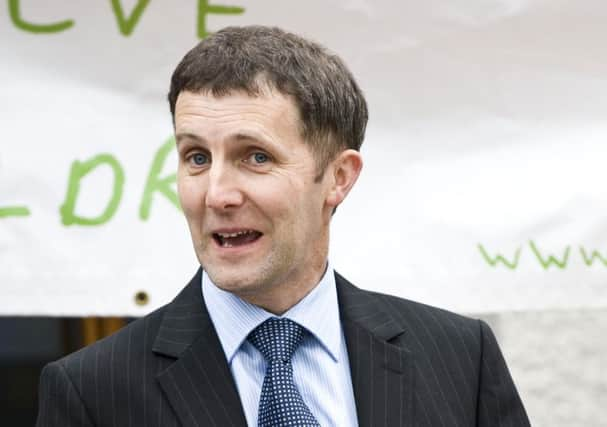Chris Marshall: Prison U-turn works for Matheson


Mr Matheson, who replaced Kenny MacAskill in November, was widely praised on Monday for scrapping the proposed Greenock facility.
The new jail had been expected to replace the ageing Cornton Vale prison in Stirling, which Dame Elish Angiolini memorably described as “antediluvian” following a review of female offending.
Advertisement
Hide AdAdvertisement
Hide AdCampaigners who fought to stop the Inverclyde jail going ahead described the minister’s decision as “bold”.
For his part, the new justice secretary said the prison did not fit with his vision for tackling female offending, with smaller regional facilities and community-based services likely to play a bigger role in the future.
FOLLOW US
SCOTSMAN TABLET AND MOBILE APPS
The U-turn was a welcome indication that this justice secretary may be willing to listen, something his predecessor seemed unable, or unwilling to do.
That intransigence was particularly apparent during last year’s row over armed policing, where Mr MacAskill repeatedly shrugged his shoulders in the face of growing public disquiet over armed police turning up at incidents such as drunken rows in McDonald’s.
It took the chief constable Sir Stephen House to see sense, eventually reversing the decision which allowed armed officers attend routine incidents.
Mr MacAskill’s unwillingness to listen to not just the public, but also the legal profession and many in his own party marked much of his time in office.
Ever since his refusal to admit he got it wrong over the release of the only man convicted of the Lockerbie bombing, Abdelbaset al-Megrahi, Mr MacAskill became increasingly dogmatic.
His willingness to pick fights with the legal profession is no better illustrated than by the ongoing row over attempts to scrap corroboration as part of the Criminal Justice (Scotland) Bill.
Advertisement
Hide AdAdvertisement
Hide AdThe plans to remove a key feature of Scots Law – that two independent pieces of evidence are needed to bring a prosecution – have upset lawyers who saw it as an intervention too far from a legislature Lord McCluskey last week described as “hyperactive”.
The new justice secretary’s willingness to take counsel on the issue of penal reform has led to cautious optimism that there could yet be a rapprochement between Holyrood and the legal fraternity.
If Mr Matheson proves to be his own man, he may even re-assess the issue of corroboration altogether. However, enjoying as it does the support of the police and the lord advocate, that could prove to be a forlorn hope for those in our legal profession.